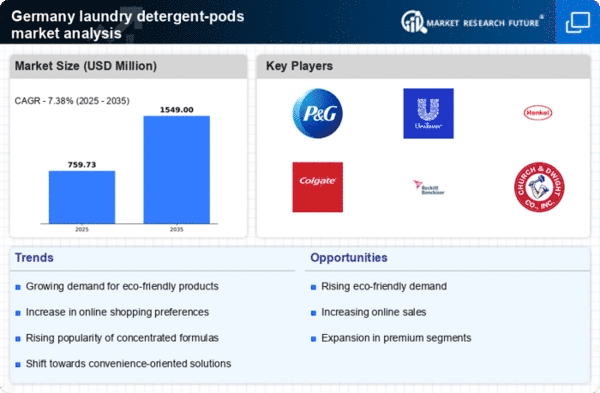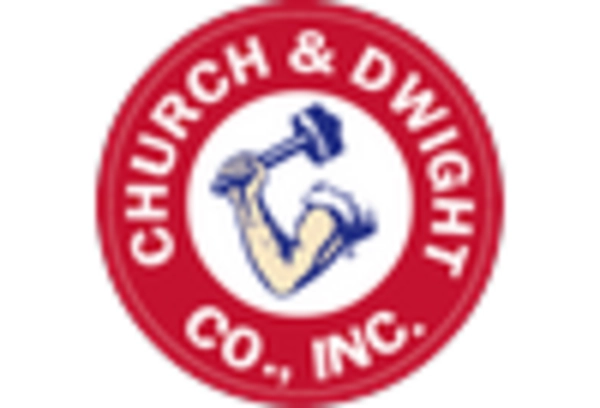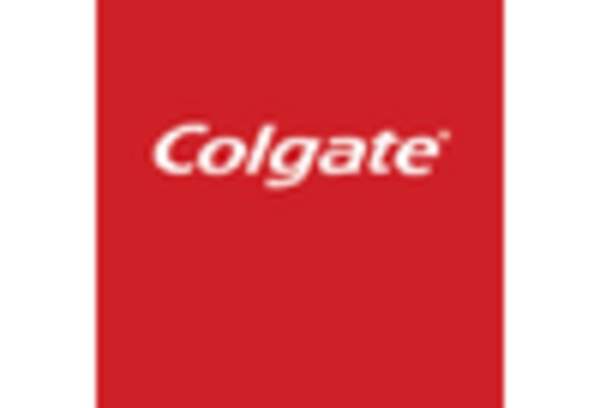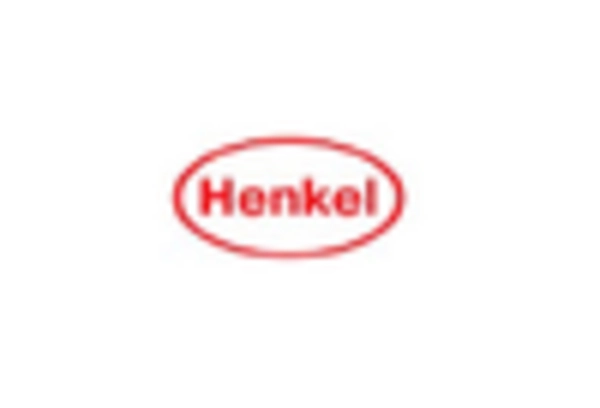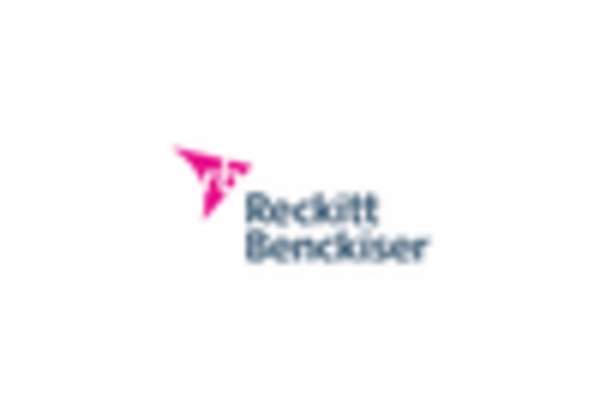Rising Urbanization
The ongoing trend of urbanization in Germany appears to be a significant driver for the laundry detergent-pods market. As more individuals and families move to urban areas, the demand for convenient and space-saving laundry solutions increases. Urban dwellers often have limited storage space, making laundry detergent-pods an attractive option due to their compact packaging and ease of use. This shift in living conditions is likely to boost the market, as consumers seek products that align with their fast-paced lifestyles. Furthermore, urban areas tend to have higher disposable incomes, which may lead to increased spending on premium laundry products. The convenience factor associated with laundry detergent-pods is expected to resonate well with this demographic, potentially leading to a market growth rate of around 8% annually in urban regions.
Competitive Pricing Strategies
Competitive pricing strategies are becoming increasingly important in the laundry detergent-pods market, particularly in Germany. As the market becomes more saturated with various brands and products, companies are compelled to adopt pricing strategies that attract price-sensitive consumers. This trend is evident as brands offer promotional discounts, bundle deals, and loyalty programs to enhance customer retention and attract new buyers. The presence of both premium and budget-friendly options allows consumers to choose products that fit their financial constraints while still meeting their laundry needs. Market analysis indicates that competitive pricing could lead to a market growth of around 6% as brands strive to maintain their market share in a dynamic environment. This focus on pricing not only influences consumer behavior but also shapes the overall landscape of the laundry detergent-pods market.
Increased Focus on Health and Hygiene
The heightened focus on health and hygiene among consumers is emerging as a pivotal driver for the laundry detergent-pods market. In Germany, consumers are becoming more conscious of the cleanliness of their clothing and household textiles, leading to a greater demand for effective laundry solutions. This trend is particularly pronounced in households with children or individuals with allergies, where the need for thorough cleaning and sanitization is paramount. As a result, laundry detergent-pods that offer antibacterial properties or enhanced stain removal capabilities are likely to gain traction. Market data suggests that products emphasizing health benefits could see a growth rate of approximately 9% in the coming years. This increased focus on hygiene not only influences purchasing decisions but also encourages brands to highlight the efficacy of their products in promoting a clean and healthy living environment.
Consumer Preference for Eco-Friendly Products
There is a growing inclination among German consumers towards eco-friendly products, which significantly influences the laundry detergent-pods market. As awareness of environmental issues rises, consumers are increasingly seeking products that are biodegradable and free from harmful chemicals. This shift in consumer preference is prompting manufacturers to innovate and develop laundry detergent-pods that meet these eco-conscious demands. In fact, recent surveys indicate that approximately 60% of consumers in Germany are willing to pay a premium for environmentally friendly laundry solutions. This trend not only reflects a change in purchasing behavior but also encourages brands to adopt sustainable practices in their production processes. Consequently, the laundry detergent-pods market is likely to see a surge in demand for eco-friendly options, potentially leading to a market expansion of 10% over the next few years.
Technological Advancements in Product Development
Technological advancements in product development are playing a crucial role in shaping the laundry detergent-pods market. Innovations in formulation technology allow manufacturers to create more effective and efficient cleaning solutions. For instance, the introduction of encapsulated enzymes and advanced surfactants enhances the cleaning power of laundry detergent-pods, making them more appealing to consumers. Additionally, advancements in packaging technology ensure that these pods remain stable and effective over time. As a result, the market is witnessing a shift towards high-performance products that cater to diverse consumer needs. The integration of smart technology, such as app-controlled washing machines that optimize detergent usage, may further drive the adoption of laundry detergent-pods. This trend suggests a potential market growth of around 7% as consumers increasingly seek out innovative and effective laundry solutions.


